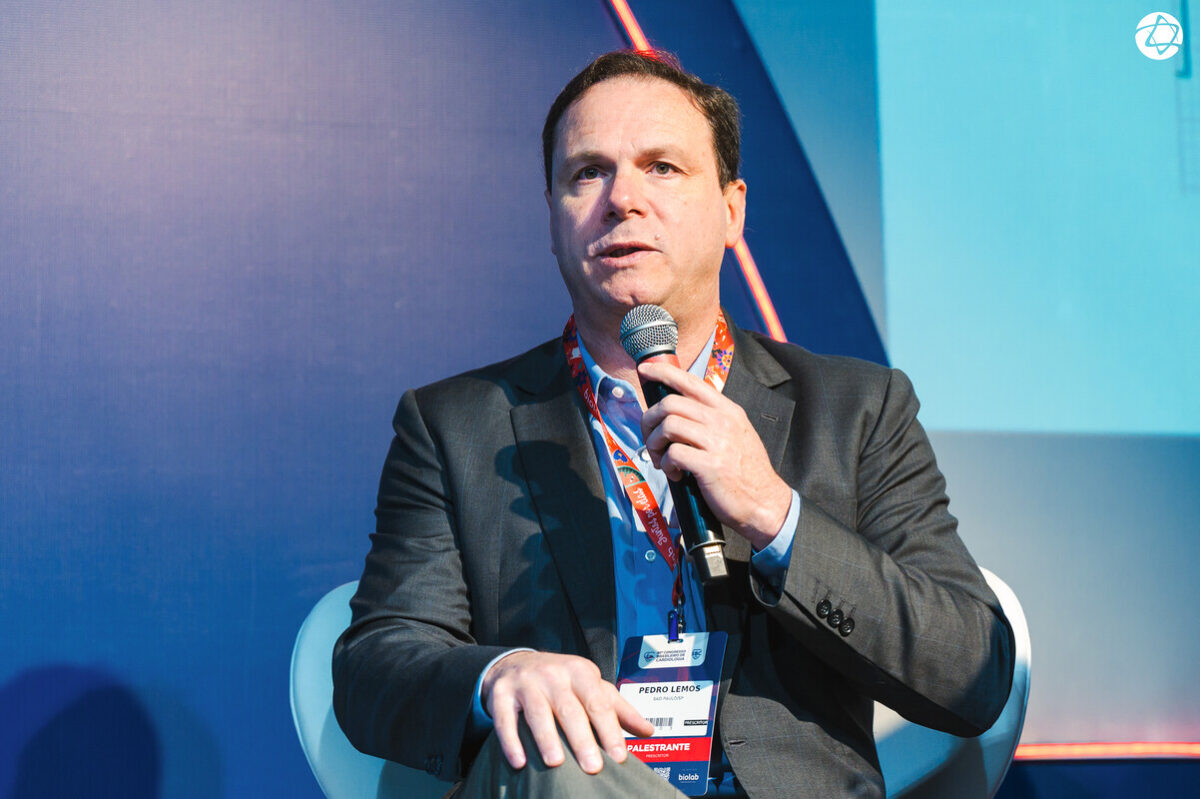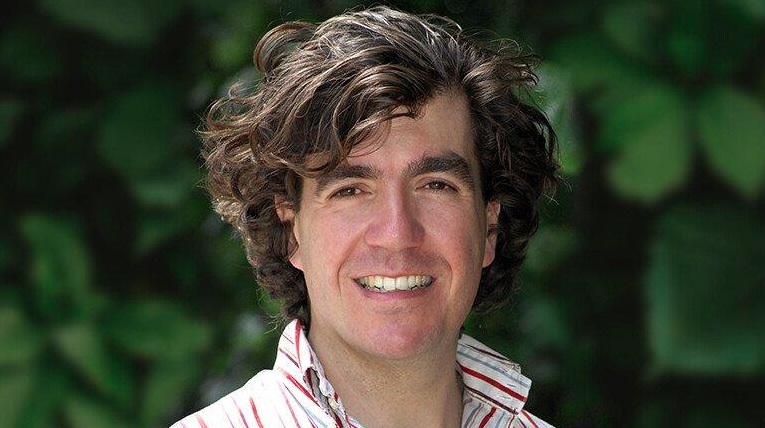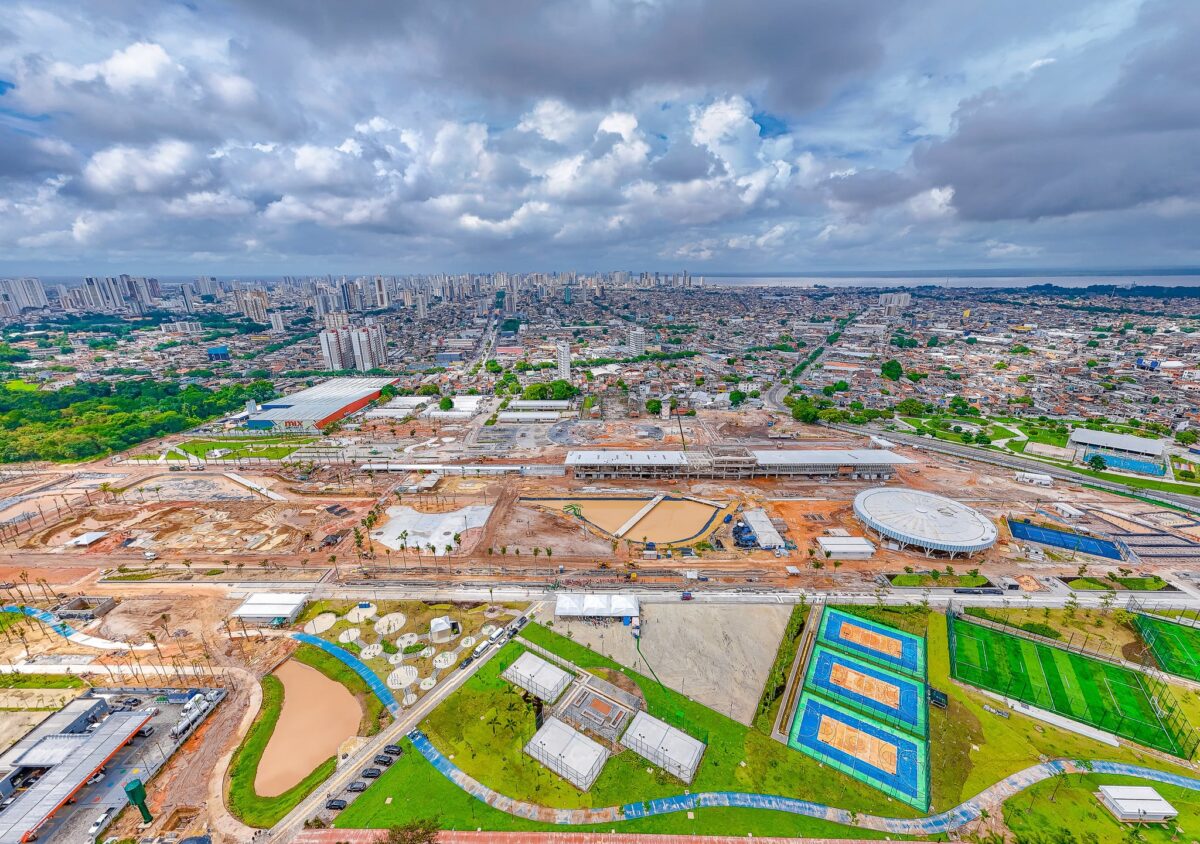 #Interviews
#Interviews
“Health needs to be the driving force at COP30,” says Wellcome Trust director
Alan Dangour, Climate and Health director at the research support foundation, believes that health must be at the core of decisions taken at the Climate Conference in November
 Alan Dangour of the Wellcome Trust: “We look forward to working with the Brazilian government to put health at the core of climate action” | Image: World Economic Forum/Valeriano Di Domenico/Flickr
Alan Dangour of the Wellcome Trust: “We look forward to working with the Brazilian government to put health at the core of climate action” | Image: World Economic Forum/Valeriano Di Domenico/Flickr
With a worsening climate crisis, public health has become one of the first and most evident aspects of impact among the population. Extreme events such as heatwaves, large-scale flooding, and prolonged droughts contribute to the transmission of infectious diseases and lead to increased hospitalizations and deaths due to catastrophes and other threats to health, such as cardiovascular and respiratory diseases.
For Alan Dangour, climate and Health director at the Wellcome Trust (a UK organization supporting biomedical research), it is paramount that the connection between climate and health is more than merely acknowledged: it must guide global strategic decisions.
The 2025 UN Conference on Climate Change (COP30), to take place in Belém, Pará State, in November, represents a decisive opportunity, argues Dangour, a former professor at the London School of Hygiene and Tropical Medicine in England.
The Wellcome Trust is one of the primary global research support foundations, acting strategically to put human health at the forefront of the fight against climate change. The Trust’s actions include funding research, supporting the formulation of public policies, and internal sustainability commitments.
In an exclusive interview for Science Arena, Dangour talks about the role of scientific evidence in influencing public policies, the challenges of sustainable research, and pathways toward strengthening ethical, inclusive networks, such as the Harmonize Brasil project.
Science Arena – What is the key aim of the Wellcome Trust in supporting climate and health research?
Alan Dangour – The aim is for the research we support to generate the evidence required to formulate locally relevant, effective public policies. We need science that’s not just rigorous, but resonant and practical.
We need to link climate impacts to health issues in real time, such as the physical effects of heat, or the expansion of infectious disease-carrying vector habitats.
The Wellcome Trust has prioritized strengthening research networks in the Global South, such as the Harmonize Brasil project. What makes these networks truly effective and fair?
We have found that some of the most impactful research networks are those led and rooted in local contexts. The Harmonize project is a great example of a network that is underpinned by ethical research and community engagement. The initiative is setting a new standard for data justice in climate and health research.
Health is normally the first and most personal way by which people feel the impacts of climate change.
Protection of health needs to be a driving force behind climate action, and this commitment needs to start with real implementation during COP30.
We look forward to working with the Brazilian government to put health at the core of climate action.

Is climate change redrawing the map of infectious diseases? In what way?
We know that many infectious diseases, like dengue, Zika and cholera, are highly climate sensitive.
Rising temperatures, increased rainfall, and extreme weather events are expanding the habitats of disease-carrying vectors and disrupting sanitation systems, making outbreaks more likely and harder to control.
However, the relationship is complex, and we still lack the predictive tools to anticipate where and when outbreaks will occur.
How can science improve its ability to predict and respond to future pandemics linked to extreme weather events?
Science needs to get ahead of the curve by integrating climate data with disease surveillance to build predictive tools in terms of outbreaks.
Wellcome is investing in new digital platforms that combine climate and health data to forecast disease risks and support faster, more targeted public health responses.
We’re funding 24 research teams across 12 countries to model how extreme weather events like floods and heatwaves drive disease transmission, and to develop early warning systems for outbreaks of cholera, dengue, and other climate-sensitive diseases.
You argue that science also needs to reduce its ecological footprint. What concrete changes are already being made, and what still needs to evolve?
We need to rethink how some research is conducted: cutting laboratory emissions, reducing travel, and embedding sustainability into procurement and infrastructure.
We encourage grantees to adopt greener practices, but the shift needs to go deeper. Collaboration with other disciplines is essential and will ideally be led by researchers, governments, and communities from within the regions that are most affected.
What are the challenges you face in demanding sustainable practices from the research institutions you fund?
Shifting the culture of research. Many institutions are still early in their journey toward sustainability, and integrating environmental responsibility into research design isn’t yet the norm.
Researchers must now consider the environmental impact of their work, from laboratory emissions to fieldwork travel, and explain how they’ll reduce it in their funding applications. We’re also requiring that laboratory-based researchers meet sustainability standards such as LEAF or My Green Lab, by the end of 2025.
It’s a big shift, but one that’s essential if science is to lead by example in tackling the climate crisis.
How does the Wellcome Trust view the role of local communities and vulnerable populations in building solutions to the climate and health crises?
Local communities aren’t just affected by the climate crisis—they’re essential to solving it.
We fund projects that embed community voices from the start, ensuring that solutions are not only evidence-based, but also inclusive, relevant, and actionable.
What would you say to young scientists who want to work at this intersection of health, climate, and social justice?
This is an urgent, exciting space in global health. There is so much innovation in climate and health research—it’s a new field, with huge opportunities to work at the intersections between various disciplines.
As we face a growing climate emergency, working at the intersection of climate change and health is extremely rewarding.
*
This article may be republished online under the CC-BY-NC-ND Creative Commons license.
The text must not be edited and the author(s) and source (Science Arena) must be credited.


